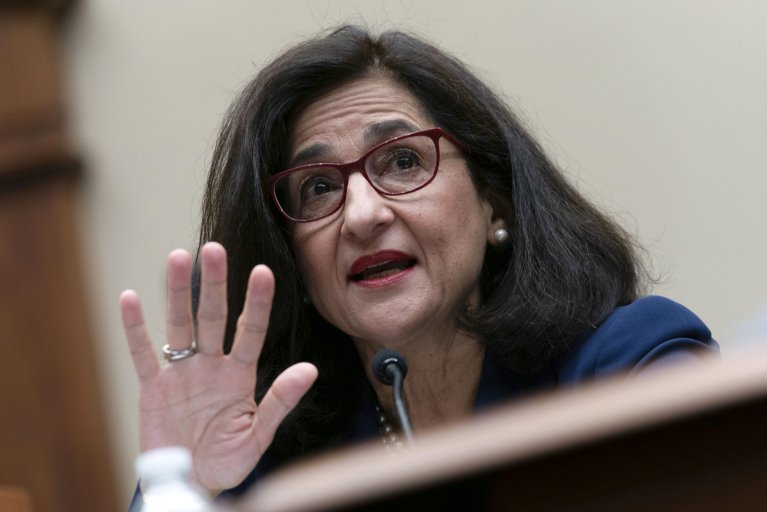The National Education Association today released survey findings sounding the alarm on the negative effects that social media and cellphones are having on students’ mental health, interpersonal skills, and learning.
Those concerns aren’t new. Childhood experts, from school principals to pediatricians, have been voicing concerns about the negative impact of cellphones and social media on students for some time—especially since the pandemic. But they strike a particularly ominous tone when coming from nearly 3,000 K-12 educators who routinely observe and try to teach school-age children.
The NEA survey, conducted by data firm GBAO, drew responses from 2,889 educators working in K-12 schools this spring. The respondents are members of the NEA, which is the nation’s largest teachers’ union.
With the survey release, NEA President Becky Pringle emphasized the need for schools to craft their own policies to restrict students’ use of cellphones and other personal devices.
“Student mental health is a serious and growing concern for parents and educators, exacerbated by social media and personal-device use in schools,” said Pringle. “Every student—Black or white, Asian or Latino, native or newcomer—deserves a welcoming and safe learning environment. That environment can be compromised when social media follows students into school. To best support student well-being, it is crucial to have strong, schoolwide, locally crafted policies restricting access to personal devices during the school day.”
The survey shows that most respondents want to restrict cellphones at school
Pringle’s comments drive home how the use of personal devices at school exacerbates the dual, related problems of students’ mental health challenges and learning disruptions. So do the survey’s key findings.
Of the NEA members who responded to the survey:
- Ninety percent support policies prohibiting the use of cellphones or other personal devices at school during instructional time.
- More than 90 percent believe students’ mental health is a serious issue.
- Seventy-five percent referred to social media use as a “serious problem” and are concerned about harmful effects, such as cyberbullying, disruption to social-skill development, and the loss of instructional time.
- Eighty-three percent think policies prohibiting the use of personal devices should extend throughout the school day (with exceptions being made for students with medical or disability-related needs).
- Only 31 percent think personal-device policies should be left up to individual educators.
Changing attitudes about cellphone use at school
The NEA survey reflects changing attitudes among teachers about cellphone use at school.
In an EdWeek Research Center survey conducted just over a year ago, only 24 percent of teachers thought cellphones should be banned from school campuses altogether. Now, it seems like more educators support the idea.
This July, independent school administrator Jody Passanisi wrote an Education Week opinion essay retracting her stance on cellphone use in classrooms that she and a fellow administrator took 11 years ago. At the time, they co-wrote an essay in Education Week extolling the potential uses of smartphones in the classroom. Now, Passanisi does not allow cellphones in class.
“Back in 2013, Shara and I didn’t know then what we know now about the incessant demands of a cellphone and how just having a phone near you can be a learning distraction,” Passanisi wrote.
As technology evolves, school administrators and educators may continue to reevaluate their stance on the use of personal devices in school classrooms and on campuses.
But for now, findings from surveys like the one released by the NEA, as well as recent EdWeek reporting on the topic, indicate that an increasing number of educators want these devices out of students’ hands during class time, if not the entire school day.
Policymakers may be following suit. At least 11 states have passed laws or enacted policies that ban or restrict students’ use of cellphones in schools or recommend districts enact their own restrictions, according to an EdWeek analysis.
Disclaimer: The copyright of this article belongs to the original author. Reposting this article is solely for the purpose of information dissemination and does not constitute any investment advice. If there is any infringement, please contact us immediately. We will make corrections or deletions as necessary. Thank you.





